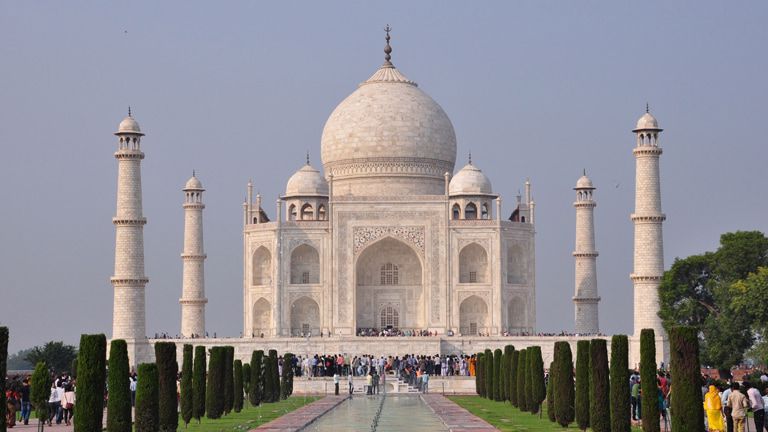According to India-Briefing, India and Portugal have a strategic partnership that’s driving growth in trade, investment, and innovation, with emerging opportunities in renewable energy, technology, and infrastructure, making them valuable gateways to Asian and European markets.
India and Portugal share a robust and growing relationship, built on a foundation of historical ties and shared political goodwill. Over the years, the two nations have strengthened their diplomatic, economic, and strategic cooperation through various high-level exchanges and bilateral agreements. Trade and investment have seen significant growth, with key sectors such as renewable energy, technology, infrastructure, and defense driving collaborations. As both countries continue to leverage their unique strengths, the India-Portugal partnership presents vast opportunities for expanding into wider global markets, fostering innovation, and deepening economic ties.
Diplomatic ties
India and Portugal enjoy a strong and amicable political relationship. Portugal has supported India’s bid for permanent membership in the United Nations Security Council (UNSC) and was instrumental in initiating the first India-EU Summit in 2000 under then-Prime Minister Antonio Guterres. Numerous high-level exchanges have taken place, such as visits by Prime Ministers António Costa and Narendra Modi, resulting in the signing of multiple Memorandums of Understanding (MoUs) in key sectors like defense, space, trade, and technology.
In 2017, PM Costa, the first Indian-origin Western head of government, visited India and signed eight MoUs. That same year, PM Modi visited Portugal, leading to the signing of 11 MoUs. Other notable engagements include PM Costa’s participation in a Gandhi anniversary event in 2019, and Portuguese President Marcelo Rebelo de Sousa’s 2020 visit to India, which culminated in 32 MoUs.
Ministerial-level visits continued in 2021 and 2022, focusing on deepening bilateral relations, ocean conservation, and green technology. Both countries support each other in multilateral fora, such as UNSC candidacies. In 2021, India became an associate observer of the Community of Portuguese Language Countries (CPLP). That same year, under Portugal’s EU Presidency, the first full-fledged India-EU leadership summit took place, addressing critical issues such as health, climate change, and pandemic preparedness.
Economic trade and cooperation
Economic cooperation between India and Portugal has broadened significantly in key areas such as renewable energy (solar and wind), infrastructure, IT, defense, textiles, tourism, and agriculture. Both nations also collaborate on startups, water management, and food processing. A Joint Economic Committee, operating at the ministerial level, oversees these initiatives, with the 5th meeting held in New Delhi in 2021.
Bilateral Joint Working Groups have been established to address specific areas including IT & Electronics, Renewable Energy, Defense, and Agriculture. The Portugal-India Business Hub plays a pivotal role in strengthening business ties, particularly in technology, construction, and hospitality. These growing partnerships reflect mutual economic interests, laying the groundwork for further collaboration in emerging industries such as green technology and defense.
Bilateral trade
According to Government of India data, India-Portugal trade reached US$1,201.41 million in FY 2022-23, with Indian exports accounting for US$1,005.41 million and Portuguese exports for US$196 million. India maintained a positive trade balance, exporting goods worth US$72.2 million while importing goods valued at US$15.5 million.
India’s exports to Portugal experienced a 40.4 percent decline compared to June 2023, with imports also decreasing by 2.59 percent. Major Indian exports included petroleum products (US$61.3 million), cotton yarn (US$9.84 million), and iron and steel (US$7.76 million). Key imports from Portugal were paper products (US$2.52 million), iron and steel (US$1.12 million), and bulk drugs (US$1.08 million).
The drop in India’s exports was driven by decreases in cotton yarn (-US$16.5 million), organic chemicals (-US$8.4 million), and plastic raw materials (-US$3.97 million). Imports from Portugal also fell in other commodities (-US$1.16 million), industrial machinery (-US$674k), and plastic raw materials (-US$389k).
India and Portugal share a robust and growing relationship, built on a foundation of historical ties and shared political goodwill. Over the years, the two nations have strengthened their diplomatic, economic, and strategic cooperation through various high-level exchanges and bilateral agreements. Trade and investment have seen significant growth, with key sectors such as renewable energy, technology, infrastructure, and defense driving collaborations. As both countries continue to leverage their unique strengths, the India-Portugal partnership presents vast opportunities for expanding into wider global markets, fostering innovation, and deepening economic ties.
Diplomatic ties
India and Portugal enjoy a strong and amicable political relationship. Portugal has supported India’s bid for permanent membership in the United Nations Security Council (UNSC) and was instrumental in initiating the first India-EU Summit in 2000 under then-Prime Minister Antonio Guterres. Numerous high-level exchanges have taken place, such as visits by Prime Ministers António Costa and Narendra Modi, resulting in the signing of multiple Memorandums of Understanding (MoUs) in key sectors like defense, space, trade, and technology.
In 2017, PM Costa, the first Indian-origin Western head of government, visited India and signed eight MoUs. That same year, PM Modi visited Portugal, leading to the signing of 11 MoUs. Other notable engagements include PM Costa’s participation in a Gandhi anniversary event in 2019, and Portuguese President Marcelo Rebelo de Sousa’s 2020 visit to India, which culminated in 32 MoUs.
Ministerial-level visits continued in 2021 and 2022, focusing on deepening bilateral relations, ocean conservation, and green technology. Both countries support each other in multilateral fora, such as UNSC candidacies. In 2021, India became an associate observer of the Community of Portuguese Language Countries (CPLP). That same year, under Portugal’s EU Presidency, the first full-fledged India-EU leadership summit took place, addressing critical issues such as health, climate change, and pandemic preparedness.
Economic trade and cooperation
Economic cooperation between India and Portugal has broadened significantly in key areas such as renewable energy (solar and wind), infrastructure, IT, defense, textiles, tourism, and agriculture. Both nations also collaborate on startups, water management, and food processing. A Joint Economic Committee, operating at the ministerial level, oversees these initiatives, with the 5th meeting held in New Delhi in 2021.
Bilateral Joint Working Groups have been established to address specific areas including IT & Electronics, Renewable Energy, Defense, and Agriculture. The Portugal-India Business Hub plays a pivotal role in strengthening business ties, particularly in technology, construction, and hospitality. These growing partnerships reflect mutual economic interests, laying the groundwork for further collaboration in emerging industries such as green technology and defense.
Bilateral trade
According to Government of India data, India-Portugal trade reached US$1,201.41 million in FY 2022-23, with Indian exports accounting for US$1,005.41 million and Portuguese exports for US$196 million. India maintained a positive trade balance, exporting goods worth US$72.2 million while importing goods valued at US$15.5 million.
India’s exports to Portugal experienced a 40.4 percent decline compared to June 2023, with imports also decreasing by 2.59 percent. Major Indian exports included petroleum products (US$61.3 million), cotton yarn (US$9.84 million), and iron and steel (US$7.76 million). Key imports from Portugal were paper products (US$2.52 million), iron and steel (US$1.12 million), and bulk drugs (US$1.08 million).
The drop in India’s exports was driven by decreases in cotton yarn (-US$16.5 million), organic chemicals (-US$8.4 million), and plastic raw materials (-US$3.97 million). Imports from Portugal also fell in other commodities (-US$1.16 million), industrial machinery (-US$674k), and plastic raw materials (-US$389k).




